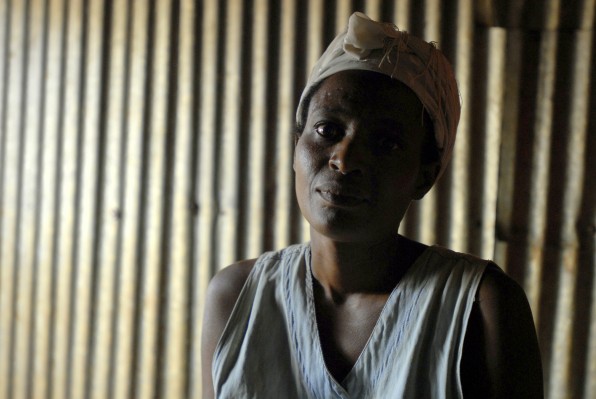November 25th is the International Day for the Elimination of Violence Against Women, a day that is particularly relevant to RefugePoint’s mission to find lasting solutions for the world’s most vulnerable refugees. RefugePoint has increasingly focused on particularly vulnerable refugee women who are in perilous situations. Exposed to widespread sexual gender based violence (SGBV) and other forms of gender-based aggression, female refugees who flee commonly lose not only their homes, but also lose the protection of a developed community. This sudden lack of social supports means that refugee women are vulnerable to SGBV from the moment they flee their homes, and, whether in an urban area or a refugee camp, the threats they face continue unabated.
Set up as emergency responses to a large influx of refugees, refugee camps often lack essential policing institutions, and SGBV perpetrators go unpunished. In urban areas, many refugees do not have proper documentation and fear the police. Essentially, no matter where they end up, refugees cannot turn to legal institutions for help. RefugePoint has found that among those woman at particular risk are those on their own who do not have community support mechanisms, including single mothers, minor girls without family and those who have already experienced SGBV while escaping home and who carry the burden of violence. The prospect of safety, particularly for these most vulnerable, is shamefully slim.
Civil society can be a strong barrier to this kind of violence. Civil society is a broad term used to describe the way groups and individuals interact outside of government or business; it describes institutions such as religious organizations, political groups, NGOs, etc. Civil society promotes public interests by providing an outlet for group-based discourse and action. The existence of an active civil society is often considered a strong indicator of the well-being and freedom of a particular group. For refugee communities, however, there is often little civil society to speak of, and without protective institutions and networks the majority of refugee women are at risk, and SGBV can flourish. By promoting civil society in refugee communities as a vehicle for long-term change, refugees are involved in sustaining their own well-being. So then the question arises: how can civil society be enhanced to create an environment in which refugee women’s rights are discussed and protected?
RefugePoint’s work with urban refugees is a partial answer to this question. RefugePoint organizes group counseling sessions for victims and those at risk of SGBV. According to a woman who attends these sessions, “the group has given us a continuity of friendship and support for each other.” Empowered by the community they discovered in RefugePoint’s counseling sessions, a number of refugee women established their own support groups, which meet regularly to discuss community issues and lend a hand of support to its most vulnerable members. The establishment of such a community allows refugee women to disseminate information about available services, provide emergency support and further propagate the wellbeing of an otherwise displaced and forgotten community of women.
As refugee women and civil society organizations struggle to establish safe communities among refugee populations, RefugePoint and its partners offer immediate support for women who are most vulnerable through resettlement — which permanently withdraws individuals from immediate danger while fostering integration into their new home.
On this International Day for the Elimination of Violence Against Women, we look at the larger issue of refugee women’s insecurity and honor the victims of SGBV who inspire our continued support.
